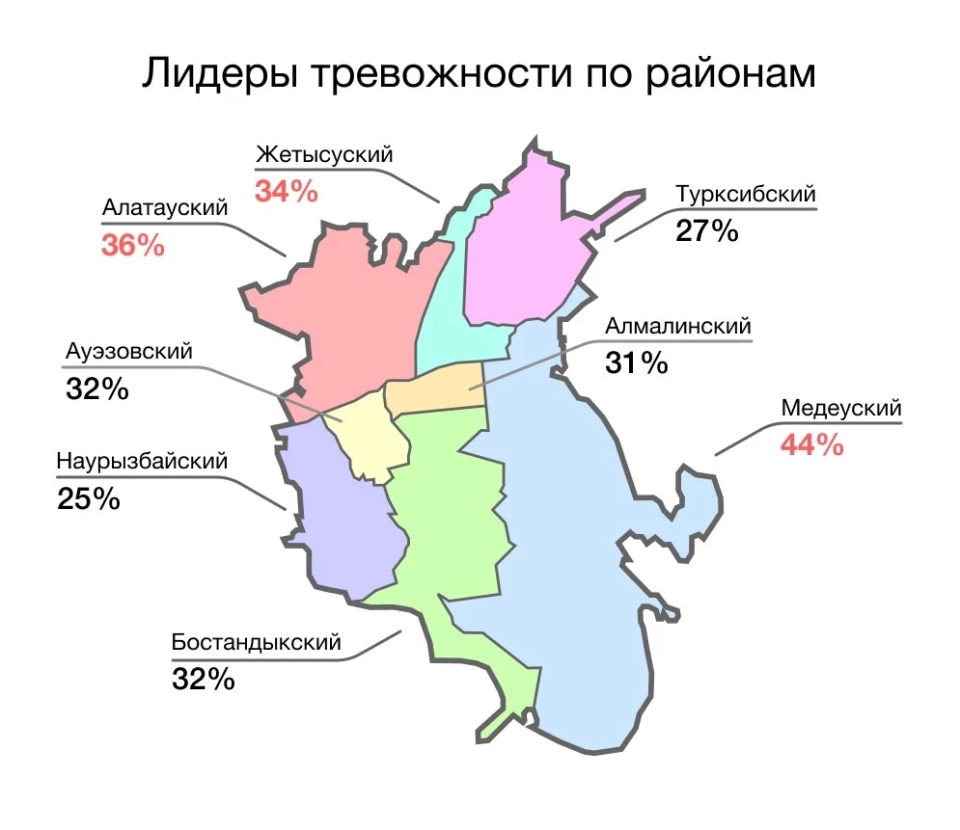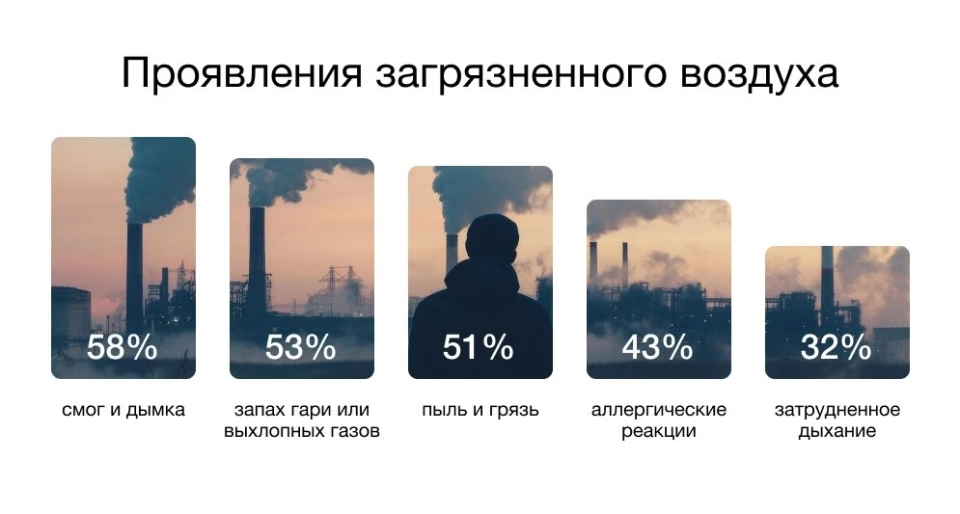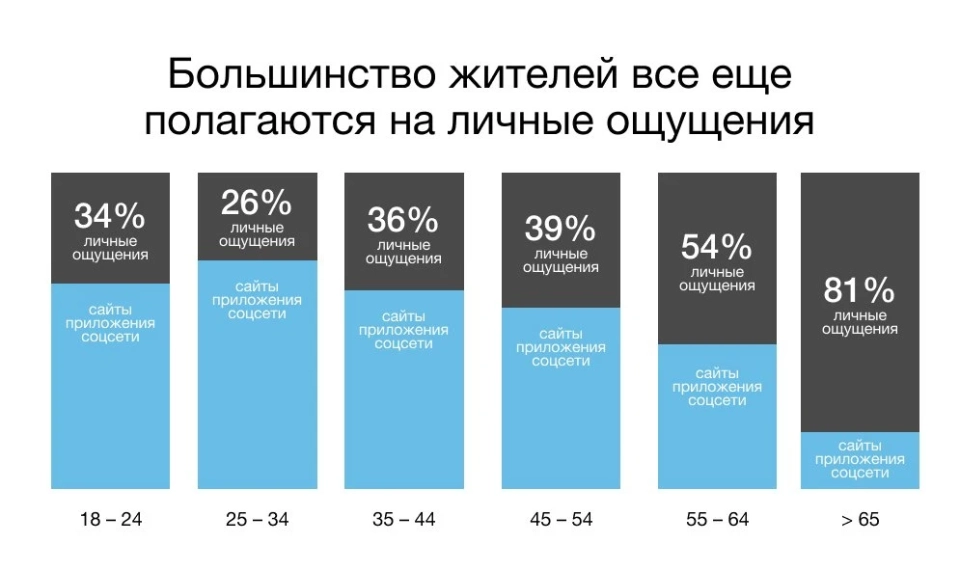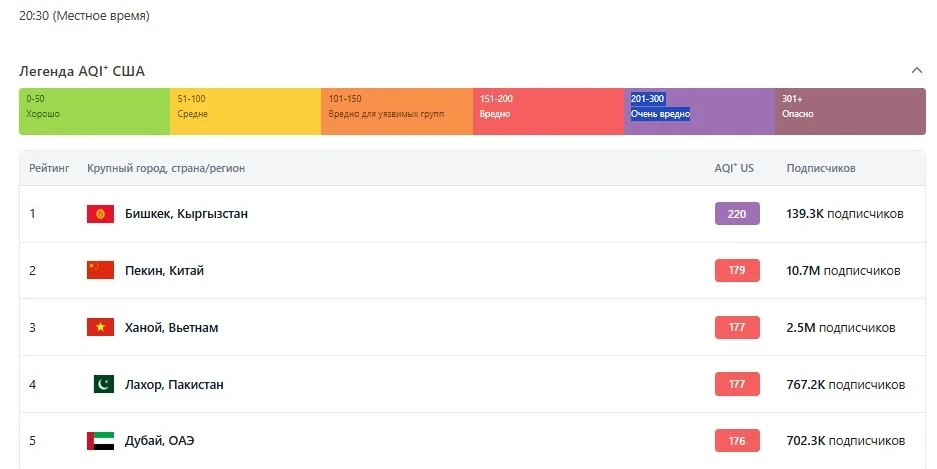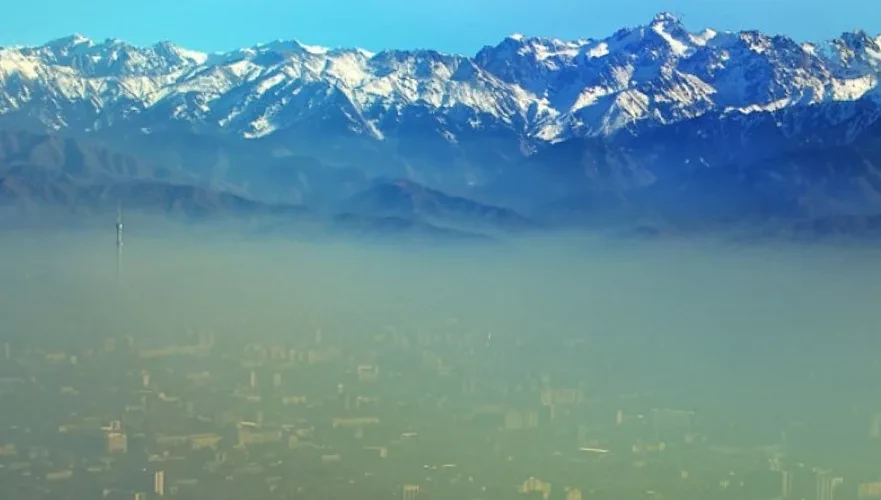
The Almaty Air Initiative Foundation conducted a study on Almaty residents' perception of air quality. The survey involved 1,000 people. Orda.kz shares residents' opinions on the city's ecology.
According to the survey, 50% of Almaty residents consider the air to be poor or very poor, while in 2024 this percentage was lower at 42%. Approximately 33% of respondents claim that the air quality is satisfactory. 63% of those surveyed noted that the air has worsened in the last two to three years.
Only 14% of residents rate the air as good or very good, which is 4% lower compared to 2024. Particularly concerning is the lack of positive assessments among residents of the Turksib district.
Despite the fact that 86% of respondents do not consider the air to be good, only 63% of them are worried about its quality. Women show greater concern: 36% express anxiety, while among men this percentage is less than a third.
“Families with children remain the most vulnerable group: among parents with three or more children, 45% report significant anxiety about air pollution, while among childless individuals this percentage is only 31%,” the study notes.
The main concerns are the consequences of air pollution for children — nearly two-thirds of respondents consider Almaty air to be dangerous.
Infographic: Almaty Air Initiative Foundation
35% of respondents experience smog daily. The highest number of such cases is recorded in the lower districts of the city:
- in the Turksib district — 43%;
- in the Nauryzbay district — 42%;
- in the Zhetysu district — 41%.
“On days of severe air pollution, one-third of Almaty residents, 35%, take no action. The others use various protective measures: 31% stay home, 23% use air purifiers, 15% wear masks,” the study reports.
About 80% of survey participants reported negative effects of polluted air on health. The main symptoms include:
- headaches, fatigue, and dizziness — 40%;
- allergic reactions — 39%;
- irritation of mucous membranes — 36%;
- breathing problems — 35%;
- high blood pressure — 23%;
- general deterioration of well-being — 30%.
The main cause of air pollution, according to Almaty residents, is transportation — 82% of respondents agree with this opinion. The next most significant sources of pollution are CHPs (45%) and insufficient ventilation due to construction (42%).
The state of the ecology in Almaty affects residents' desire to leave the city — both temporarily and permanently.
“According to 2025 data, 60% of respondents have at least once considered the possibility of leaving due to the ecological situation, and one in four has seriously thought about it. Last year, this was only 17%,” the study states.
Among high-income respondents earning over a million, the percentage seriously considering relocation is 41%. A high percentage of those wishing to leave Almaty is also observed among people with higher education — 28%. At the same time, only one in five of those without higher education considers the possibility of moving.
Almost half of the respondents, 49%, expressed a desire to leave Almaty in winter due to smog, which is 4% more compared to last year. 12% reported that they already practice such trips.
“Among those who leave Almaty in winter, only 8% do not experience any symptoms. The rest feel the effects of pollution: 50% suffer from headaches and fatigue, allergies, and respiratory problems. Even among those who are simply considering relocation, the share of complaints remains high: 54% complain of headaches and fatigue, 52% of allergies, and 51% of breathing problems,” the study notes.
Researchers were also interested in residents' awareness of where to find information about air quality. Only 18% of respondents are confident in their knowledge on this issue, but this figure has increased from 10% in 2024. 14% have heard of some sources, while 68% do not know where to look for such information.
“Most residents still rely on their own sensations: 39% rely on smell or visibility of smog,” the study emphasizes.
Residents of Almaty are insufficiently informed about measures to improve air quality. Only one in ten knows about specific initiatives, while about a third have heard of them.
“Among those who recalled specific measures, low-emission zones were mentioned most frequently — 11.3%, the use of air purifiers — 8.5%, converting CHPs to gas — 6.7%, electric transport and transitioning transport to gas — 5.4%,” the study reports.
Almaty residents highlight the reduction of emissions from transport, converting CHPs to gas, and greening the city as desired measures. However, 63% of respondents consider the current government measures to improve air quality ineffective. Perhaps after the introduction of new environmental regulations, attitudes towards them will change.
